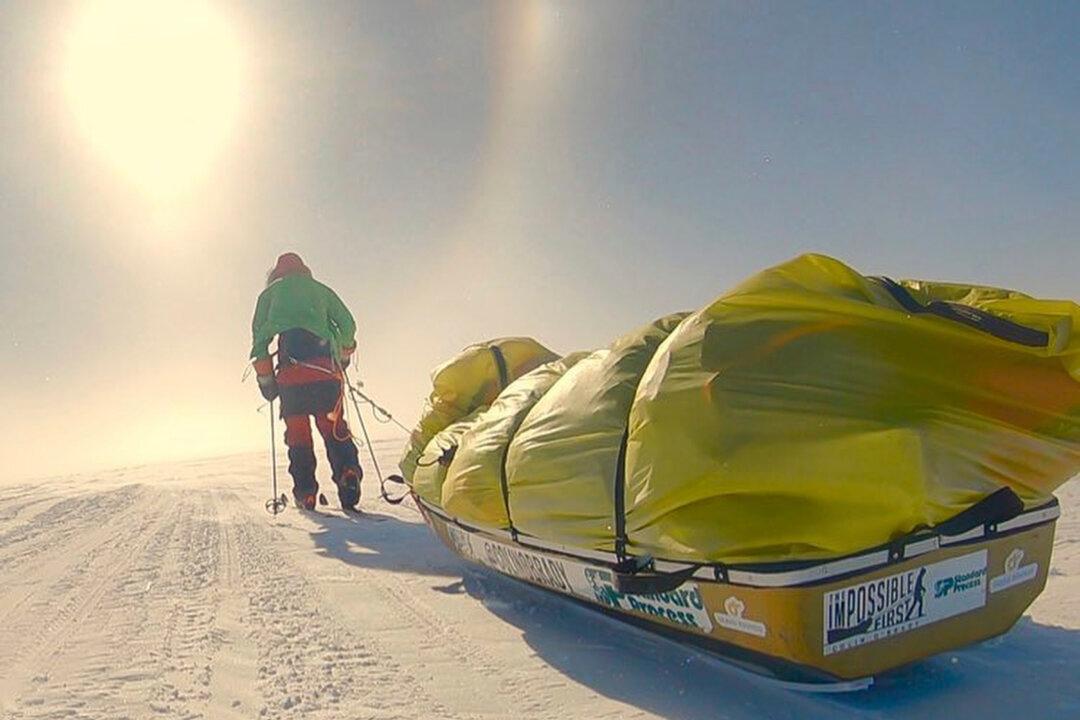An American man has become the first person to cross the Antarctic solo and unaided, dragging a 375-pound sled, including supplies, coast to coast via the South pole on the same journey that two years ago left a British explorer dead.
On Nov. 4, Colin O'Brady, 33, started the 930-mile trek, which he dubbed “The Impossible First.” Just 54 days later, he posted a picture on Instagram of himself at the finish line making a tearful telephone call to his wife.





